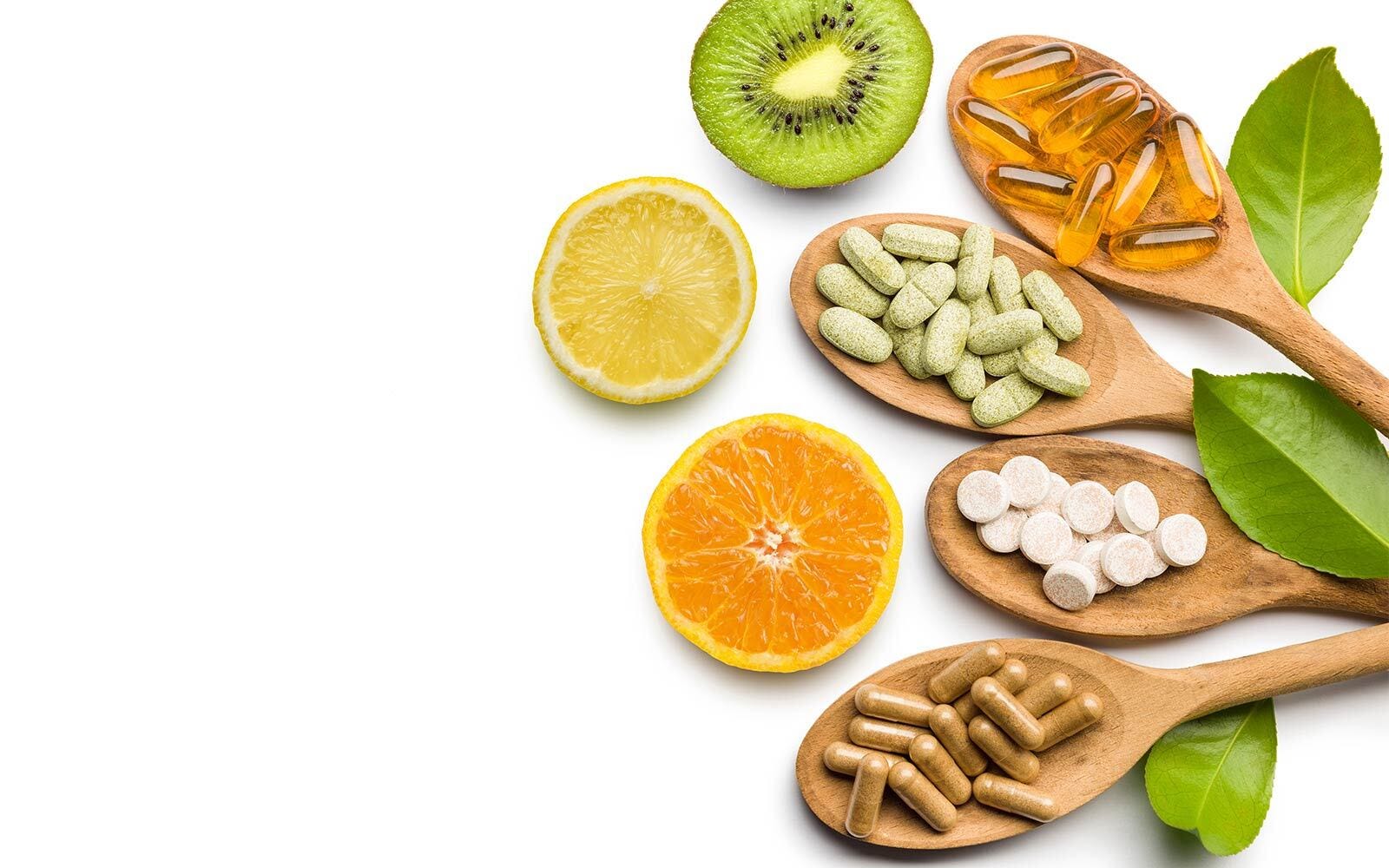13 Essential Vitamins and their Functions
There are 13 essential vitamins your body needs to stay healthy. Here’s how to make sure you’re getting enough of each.

Vitamins are essential for your wellbeing and perform a plethora of key roles in the body. There are 13 vitamins your body needs to stay healthy.
Below we explore what vitamins are used for by the body and how to include them in your diet.
The Essential Vitamins Your Body Needs
Vitamin A
Vitamin A supports the immune system to help fight against infection. It also keeps your skin healthy, helps with your vision and supports general health and wellbeing. The best food sources of vitamin A are eggs and milk. It can also be found in vegetables and fruits, like carrots and mangoes.
B vitamins
There are eight B vitamins in total, and they’re all good for energy – helping your body to turn carbohydrates, fat and protein into fuel. Except for B12 and folate (which are stored by the liver), B vitamins can’t be stored by the body and must be consumed in wholefood form. Food sources of B vitamins include lean meat, fish, whole grains, fruit, vegetables and legumes.
Vitamin C
Vitamin C is important for supporting the immune system to help fight infection, assist iron absorption and collagen formation. It’s also a powerful antioxidant. The human body can’t make vitamin C, so it’s essential to get your intake from your diet. Food sources of vitamin C include fruit, such as oranges, lemons, limes, grapefruit and tomatoes, and green vegetables such as cabbage, spinach, lettuce and broccoli.
Vitamin D
Vitamin D is important for supporting healthy, strong bones, muscles and overall health. Spending time in the sun is the best way to produce vitamin D in your skin (always be sun smart, especially in summer). Food sources of vitamin D include fatty fish, cod liver oil, fortified milk and milk products, and fortified cereals.
Vitamin E
Vitamin E is an antioxidant that helps protect your body against damage from free radicals. It’s important for your vision, immune system and skin. Food sources of vitamin E include fresh, minimally processed foods like leafy green vegetables, nuts and seeds, and egg yolks.
Vitamin K
Vitamin K helps support healthy bones, blood vessel health, and cardiovascular health. Food sources include leafy green vegetables, some vegetable oils (like soybean oil) and some fruits (like blueberries and figs), as well as cheese, eggs and some meats. We also get vitamin K from the bacteria in our gut.
Always read the label and follow the directions for use.
Common Dietary Vitamin Deficiencies
Considering we live in a sunny country, you may be surprised to discover vitamin D deficiency affects over 30 per cent of Australian adults. Dietary vitamin D deficiency can result in a decline in bone density in adult life, increasing the risk of osteoporosis and bone fractures.
Vitamin D deficiency is common in Australia as many Australians are cautious about sun and skin health. Around 20 minutes per day of sun exposure on bare skin is recommended to support vitamin D levels.
Symptoms of a vitamin B dietary deficiency will differ, depending on which type of vitamin B you don’t have enough of. Symptoms are usually mild and can be treated by having more food rich in B vitamins. Taking supplements may also help restore your levels.
People with vitamin dietary B deficiency may experience:
-
angular stomatitis and cracked lips
-
low energy or tiredness
How Vitamin Supplements Can Help
While most of our vitamins come from the food we eat, and dietary vitamin deficiencies are rare, supplements can support you to help maintain health levels of vitamins and minerals, in the body.
Be mindful that some vitamins may need to be taken at separate times to ensure optimum absorption. It’s best to check with a health practitioner about what vitamins you should be taking.
Types of Vitamin Supplements
Essential vitamins are available in gummies, capsules and powders – how you take your vitamin supplements generally comes down to your personal preference. In whatever form they’re taken, the function of vitamins stays the same.
For example, there is little evidence any particular form of vitamin C will provide better absorption or effectiveness over another – so take your pick!
Always make sure to only take the recommended daily dose unless advised otherwise by a health practitioner.
Always read the label and follow the directions for use.
Taking the Best Care of Your Family
While obtaining essential vitamins and minerals through a healthy, balanced diet is always best, it’s not always easy to eat as well as we should. In addition, declining nutrients in fruit and vegetables due to soil depletion may make it even more difficult to obtain the nutrients your body needs for optimum health. Specially formulated women’s multivitamins, men’s multivitamins and kids’ multivitamins can help support general health and wellbeing, for that peace of mind when it comes to your family’s health and wellbeing.
Read more about how vitamin supplements can improve your health in our article, "What Health Supplements do You Need?"
Always read the label and follow the directions for use.









